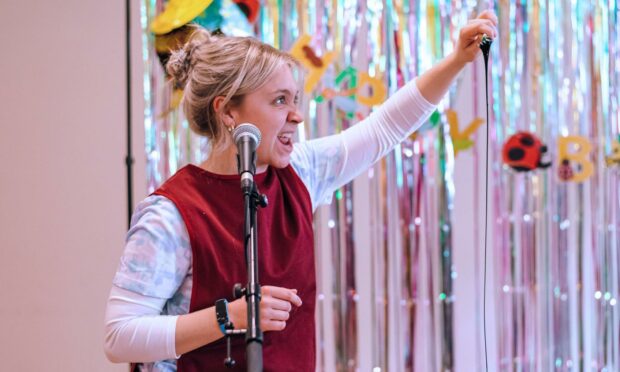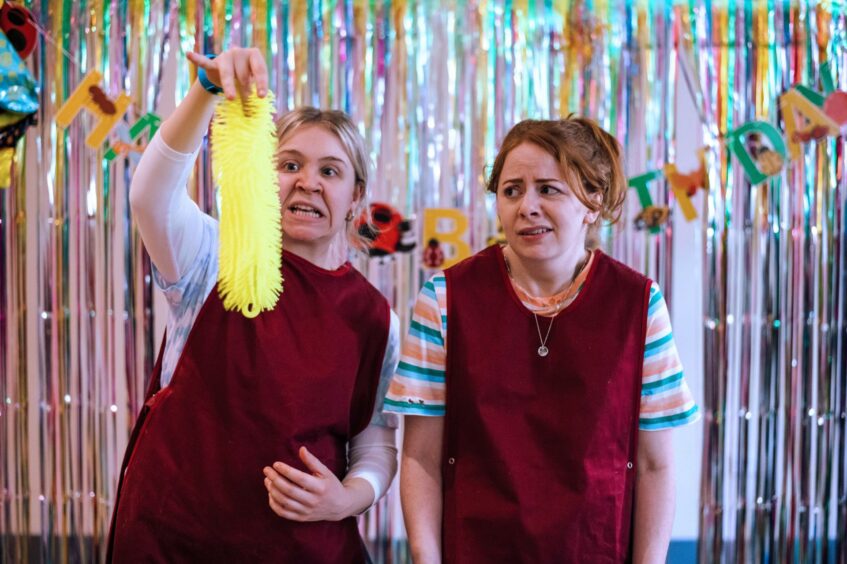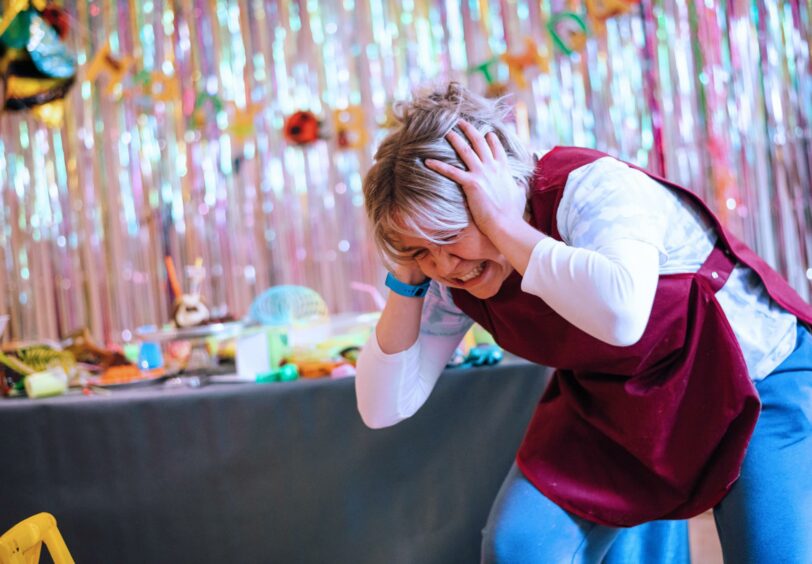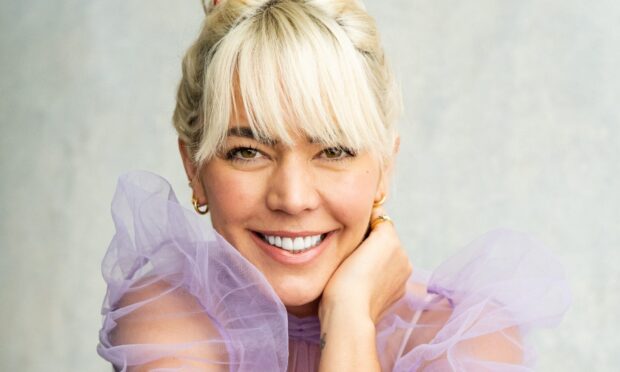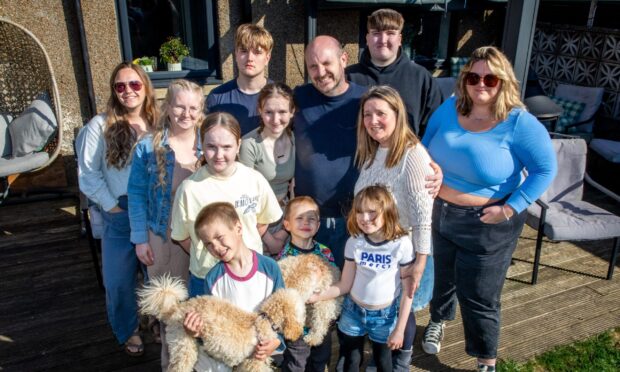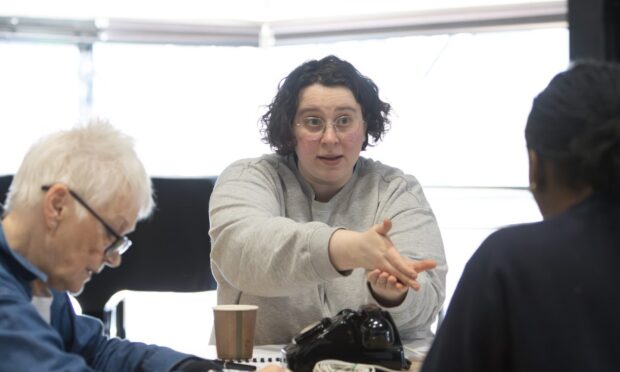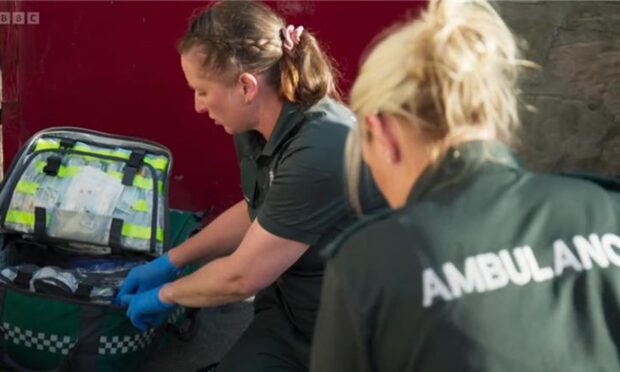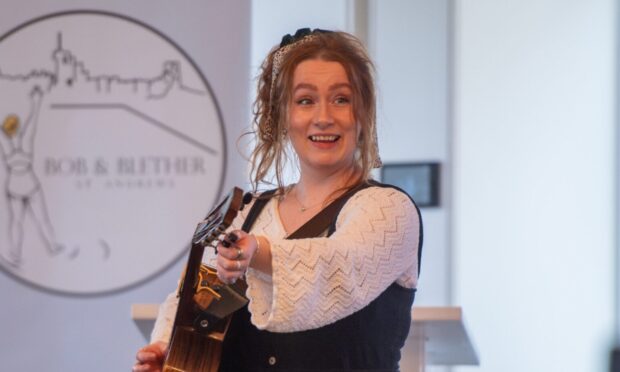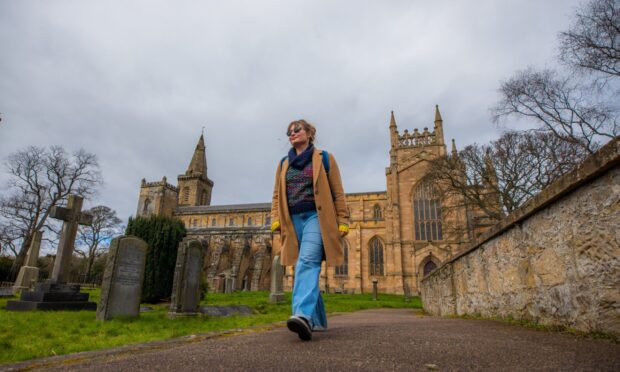Scottish theatre company Vanishing Point’s recent adaptation of Franz Kafka’s 1915 novella The Metamorphosis illustrated how brilliantly open to interpretation the story is.
Telling of Gregor Samsa, a cycle courier (in the new version) who wakes up to find himself transformed into a verminous creature, it touches on all manner of areas; identity, family, discrimination and class.
There’s also a sense of body horror, which is grimly appropriate, given the show premiered a few days before lockdown began and had to be postponed until this spring.
A different version
“The Metamorphosis: Unplugged is different to the mainstage show,” says Joanna Bowman, associate director of Vanishing Point and deviser and director of the company’s brand new reinterpretation of the story, which tours to St Andrews this week.
“The story is still Kafka’s The Metamorphosis, but this version is a cast of two women, playing a pair of cleaners who stumble across a copy of The Metamorphosis left behind after a child’s seventh birthday party.
“They’re initially quite disinterested by it, but increasingly they get sucked into Gregor’s story. Their realisation is about the exploitation that’s caused him to be transformed into this insect – is it any different to the exploitation they experience in their jobs?
“All of that makes it sound very heavy, but it’s fun in a way I don’t think one would ever describe the mainstage show as.
“The thing to emphasise with the Unplugged show is, it’s about telling stories as an act of excitement and wonder, and how we can discover resonances in a book that was written well over a century ago.
From cleaners to storytellers
“We see a real transformation in these cleaners, to people who become storytellers. They become so invested in the story that they themselves are transformed, and they end up putting on this quite remarkable performance.”
The Metamorphosis: Unplugged stars Fiona Wood and Daisy Ann Fletcher, and was, says Bowman, planned two years ago alongside the original show.
It isn’t a stripped-back lockdown project or anything. ‘In fact, it was due to start rehearsals about a week after we went into the first lockdown,” she says. “It seemed at the start that it might be able to be made, but of course, it took two years longer than anticipated.
“It’s about Vanishing Point’s increasing commitment to making work for geographically difficult to reach audiences.
“We’re taking the show into community centres and village halls, into places audiences might have relationships with already, and saying, would you like to come and see our show?
“Rather than saying you’ve got to make the effort to come and see it, we’re going to come to you.”
So, what changes?
Does the way the story’s presented here change the themes around it?
“There’s a more explicit link in this version between the fact both the characters are women, and that who the burden of care falls on when Gregor is transformed is his sister, Greta,” says Bowman.
“There’s a question about who cares and how we care for people who become ill, and I was really keen to think about this idea of low-paid workers in the gig economy.
Things still go awry
“Greta becomes more and more oppressive, and the family run out of money and have to take on jobs. This is all in the book, but both shows have made choices, as you do with any adaptation, about where our focus is.
“This show consciously leaves a lot of space for the audience to project on their own experiences, to see some resonance with their own life.”
What does she want those audiences to take away from the show?
“My first priority is to give them a good night out,” says Bowman. “We’re going to places that aren’t theatres, so we want them to have enjoyed the experience of coming to see something a bit different.
Getting us thinking
“Then there are a lot of interesting ideas in the show – they might percolate a bit, your response might not be immediate, but I’m hopeful they embed in your subconscious somehow, then you might find yourself turning over an idea.
“Also, just hearing this extraordinary story. The first line of the book about Gregor turning into an insect is such a striking and exciting place to start the novel, and we never want to lose that in our telling of it.
“We take some liberties with the story, but I’d be very happy if someone decided to go away and read the book.”
The Metamorphosis: Unplugged is at the Byre Theatre, St Andrews, on Wednesday May 11. vanishing-point.org
